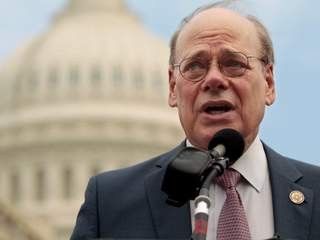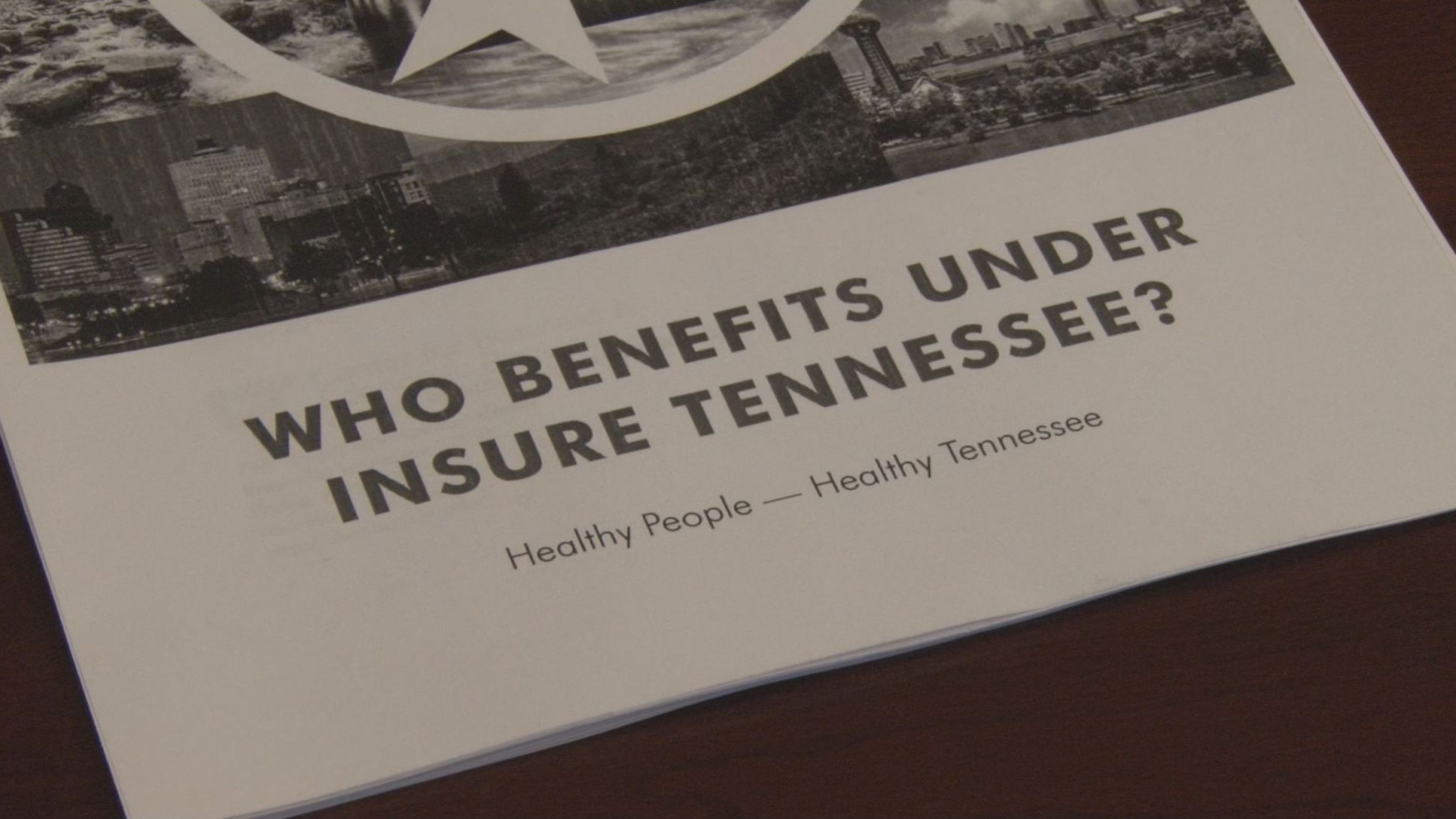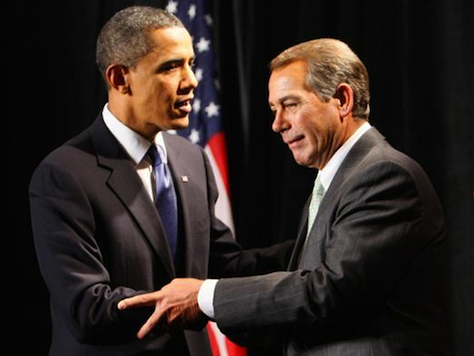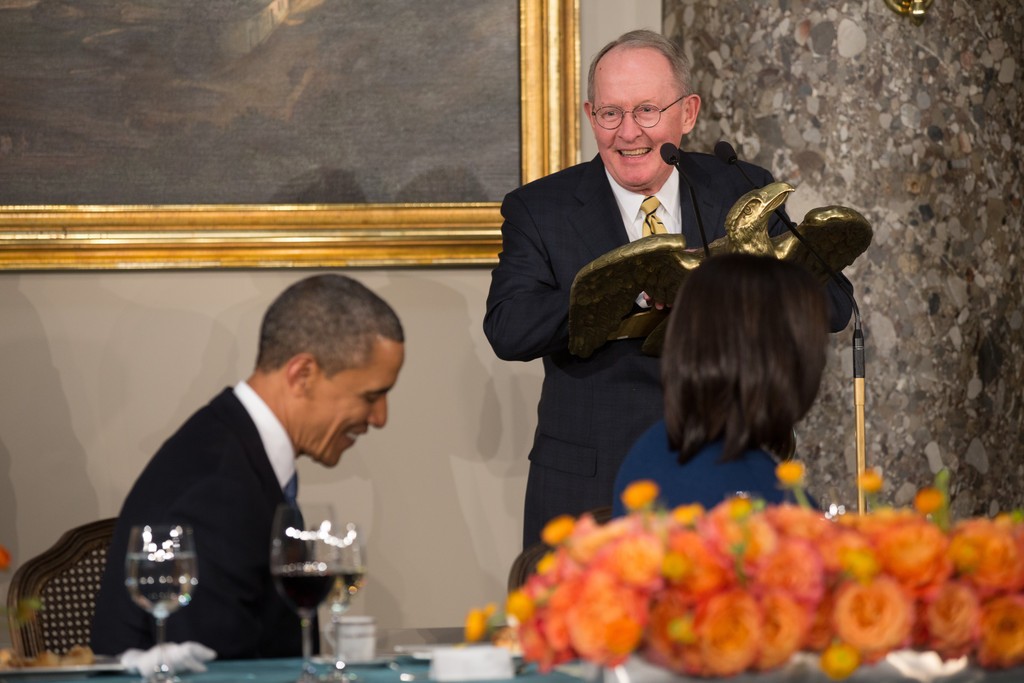Against all odds, backers of a renewed effort to secure legislative approval for Governor Bill Haslam‘s Insure Tennessee proposal hoped to steer the Medicaid-expansion measure through committees in both the state Senate and state House this week.

And, even if the proposal is stopped short of the goal, as it was in an aborted February special session, 9th District Congressman Steve Cohen and other members of the state’s congressional delegation have managed to obtain some measure of fiscal relief for the state’s beleaguered hospitals.
Cohen announced this week the passage of the Medicare Access and CHIP Reauthorization Act, which, the congressman said in a press release, will “guarantee disproportionate share hospital (DSH) allotments totaling more than $530 million over the next 10 years to help the state’s hospitals and community health centers recoup expenses incurred caring for those who cannot afford to pay.”
As Cohen, who took the lead in securing the new funding, noted, Tennessee is the only state in the nation that, until passage of the act, was not in a position to receive annual DSH allotments automatically.
The reason for that has been that, when the administration of Governor Ned McWherter negotiated a waiver with the federal government to convert Tennessee’s Medicaid operation into what became TennCare, the DSH allotments were not included within the waiver. The oversight, based on an apparent overestimation of TennCare’s ability to cover all exigencies, may have kept the state from receiving as much as $450 million in DSH funding annually.
Attempts in recent years to remedy that situation have been blocked by a general atmosphere of fiscal austerity in Washington, and even the new arrangement, which secures a guaranteed amount of new federal DSH funding amounting to $53 million annually, provides but a drop in the bucket compared to the $1.4 billion that would be made available to the state’s hospitals for indigent health care through Insure Tennessee via the Affordable Care Act.
Haslam’s proposal was voted down 7-4 by a specially constituted state Senate Health and Welfare committee in the special session, but, Lazarus-like, it got up and moving again last week as Senate Joint Resolution 93, passing hurdles in the Senate Health and Welfare subcommittee and the regular Senate Health Committee.
SJR 93, co-sponsored by Senators Jeff Yarbro (D-Nashville), Doug Overbey (R-Maryville), and Richard Briggs (R-Knoxville), was on the schedule to be considered this week by the Senate Commerce and Labor Committee. Meanwhile, over in the House, Rep. Larry Miller (D-Memphis) had put the House version of the measure, HJR 90 on notice in the Insurance and Banking Subcommittee. Opinion of lawmakers consulted by the Flyer is divided on the extent to which consideration of Insure Tennessee on the floor of either the Senate or the House will be determined by what happens in committee.
Some proponents of the proposal are wondering out loud if a bill passed last year requiring legislative approval of Medicaid expansion actually applies prohibitively to an executive action by the governor.
· In separate conventions held over the weekend, the Shelby County Democratic Party (SCDP) and the Shelby County Republican Party each elected a new chairperson. In both cases – a woman.
The Democrats went first, convening on Saturday at First Baptist Church on Broad, selecting first a 29-member executive committee, which in turn elected longtime party activist Randa Spears on the second ballot from a field of four aspirants.
Spears thereby became the first white female to head the local Democratic Party in its history.
Her ascension to party leadership, after 32 years in the gruntosphere, made perfect sense. It was a reward for faithful service — including a recent stint as campaign manager for Deidre Malone, the Democratic nominee in last year’s county mayor race. It was a nod to the longstanding prominence of women in party affairs (as in local social and civic life, generally). And it was a clear signal to Shelby County’s white population that the SCDP was not, as it has sometimes seemed in recent years, a monolithically black organization.
Asked about that last fact in the aftermath of her second-ballot win over runner-up Del Gill, Spears was discreet, diffident, and diplomatic: “I don’t know that that is important. I think it’s important that someone with my focus and experience and enthusiasm is chairman. And I think I’ve worked with almost everybody in this room, except for the new folks, on one campaign or another. So I look at this as all one group.”
Malone, who, in an exchange of roles this year, had been Spears’ campaign manager, addressed the point more freely: “I do think it’s important to have elected a white chair — and especially a white female. It makes a statement.”
Just as it might to elect a female mayor at some point, she was prodded? “Yes,” she nodded, in gratitude for the implied tribute to her pathfinding 2010 and 2014 mayoral campaigns.
For the fact is, American politics is all about constituent groups (or blocs, if you choose). The more different ones your party can address satisfactorily, the more broadly based — and successful — your party is likely to be.
All four candidates on Saturday’s ballot had something to say for themselves. Runner-up Del Gill could boast his four decades of party work, newcomer Jackie Jackson was a fresh breath, just a little too new to most committee members to win; and pre-convention favorite Reginald Milton, a well-respected county commissioner, was conspicuous in his efforts to unite disparate party factions.
Politics is also all about trade-offs, and Spears’ victory owed much (as did Milton’s defeat) to longtime party broker Sidney Chism, who, for whatever reason, tipped his support, and that of his still significant network, to her.
Gill, all things considered, was not that far behind Spears, at 11 to her 16 on the second ballot. And, Gill being Gill, it was unlikely that he was prepared to fall in line behind Spears. Encouraged by his original first-ballot-leading total of 11, he put up something of a fuss at meeting’s end about a procedural issue regarding the validity of the new committee’s voice vote to continue the party’s bylaws in lieu of a full review of them.
The newly elected Spears politely but firmly disallowed the complaint and moved on to complete the day’s business. She did say later that she was willing to avail herself of the “wealth of experience” of Gill and whomever else. But it remained to be seen whether she can impose an effective measure of unity on a committee composed in large part of members potentially sympathetic to Gill’s dissident outlook.
A day later, on Sunday at the Bartlett Municipal Community Center, a throng of several hundred Republicans (including 400-odd delegates as such) witnessed what amounted to a re-assertion of the local GOP establishment’s control of the Shelby County Republican organization.
Though there was no dearth of competition — either for the party chairmanship, won by Mary Wagner over Arnold Weiner, or for the numerous other offices up for grabs — the Tea Party rebellion that flared up at the 2013 Republican conclave and in attempted power grabs at several local Republican clubs has been contained. There was no Tea Party slate as such, with adherents of that somewhat diversified, quasi-libertarian point of view to be found on both contending slates, Wagner’s and Weiner’s.
There was a message to be had, though, in the fact that the slate headed by Wagner, a relative newcomer to party politics whose last position was that of Young Republicans president, all but swept the slate led by Weiner, a longtime party veteran who had been, most recently, a party vice chair and immediate past president of the East Shelby Republican Club. And that “all but” is required mainly because Curt Cowan, the Wagner slate’s candidate for Primary Board position Number 5, was prevailed upon to drop out in favor of George Flinn, the wealthy radiologist/broadcast executive and sometime political candidate who still maintains a high profile in the local Republican Party.
The other 35 contested positions — for chairman, at-large steering committee members, district representatives, and primary board members — were won by the Wagner slate. The message, quite simply, is that there is a Republican mainstream, and it is back in full command.








